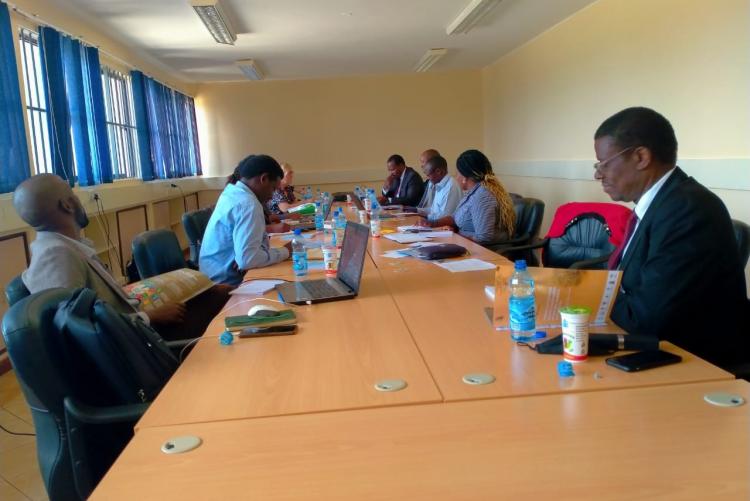Dryland Transform -Pathways and challenges toward a socio-ecological transformation of landscapes, livestock and livelihoods in the East African drylands, is a multidisciplinary research project (2020 – 2024) led by the Swedish University of Agricultural Sciences (SLU). The Drylands Transform is being implemented by a multidisciplinary research team from Intergovernmental Authority on Development, IGAD, Linnaeus University, Makerere University, University of Nairobi, Swedish University of Agricultural Sciences (SLU), Umeå University, University of Gothenburg, and World Agroforestry (ICRAF) In Uganda, the project is being coordinated under Makerere University, College of Agricultural and Environmental Sciences. The geographical focus of Drylands Transform is the cross-boundary area between Kenya and Uganda, part of the Karamoja cluster.
The project aims to investigate the links between land health, livestock-based livelihoods, human well-being, and land management and governance. We will contribute with new knowledge for transformative change and sustainable development of rangelands in the drylands of East Africa.
One of key of activity is capacity building through postgraduate student’s sponsorship for Master, Doctorate and Post-doctorate studies from the participating universities in Kenya, Uganda and Sweden. Some of beneficiaries from University of Nairobi are:
|
Project Objective |
Student |
Programme enrolled in at UoN |
|
Elizabeth Githendu |
MSc Range Management |
|
Margeret Nyaga |
PhD Range Management |
|
Caroline Kawira |
PhD Food Science and Technology |
|
Deborah Muricho |
PhD Agricultural Economics |
|
|
|
These students presented their research concept notes during the meeting. Some of reactions from project presentations were, how the technologies will be adopted by the communities other involved stakeholders, proper consideration of Indigenous Knowledge (IK).
Reacting to the presentations, the Dean, Faculty Agriculture Prof. Moses Nyangito welcomed the initiatives, cherished the “Rich” partnership and emphasized of positive transformation of drylands will be realized at the project completion. In his remarks he reiterated that, students deliverables be monitored closely as the University is keen on students progress hence it’s anticipated degree completion time will be within the stipulated period of sponsorship. On research work supervision, the students should have atleast 4 supervisors. 2 from the host University and 2 from the project team.
Dean, Faculty of Agriculture, Prof. Moses Nyangito in a meeting with the Dryland Transform Project PI, Professor Ingrid Oborn, Country Coordinator, Dr. Stephen Mureithi, Objective 5 Lead, Prof. Gert Nyberg and the project supported post graduate students.
Dr. Stephen Mureithi, the lead Project Coordinator in Kenya, echoed Dean’s sediments and informed participants recruitment of students is ongoing and any eligible candidate is encouraged to apply. All students supported by the project will be facilitated to access library services at SLU or other Swedish University libraries.
In attendance from Department of LARMAT were Prof. Richard Onwong’a (Chairman, LARMAT), Dr. Staline Kibet, Ms.Carolyne Kyalo, and Dr. George Abong, Chairman, Department of Food Science Technology and Nutrition
The visit was crowned with tree planting at the LARMAT garden as it coincided with the International Day of Forests, under theme “Forest and Sustainable Production and Consumption"
- Log in to post comments

